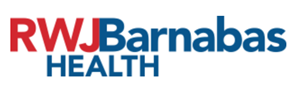A New Jersey peer support program offering round the clock recovery services for individuals with substance use disorders, whether presenting at emergency departments or admitted as in-patients.
Funded in 2016 by the New Jersey Department of Health, Division of Mental Health and Addiction Services, the Peer Recovery Program (PRP) serves emergency departments and in-patient settings across 20 hospitals in the RWJBarnabas Health System, providing recovery services to patients presenting with substance use disorders. Many patients arrive having survived an opioid overdose and thus are often motivated to accept assistance from peers in recovery, helping them link to post-discharge treatment and recovery services. Key features of the program, formerly known as the Opioid Overdose Recovery Program (OORP), include:
- full time recovery specialists (RSs), available 24/7, facilitate timely interaction with patients before discharge
- peer coaching and support are available at bedside soon after a patient's request, encouraging them to seek treatment
- if the patient agrees to seek treatment, patient navigators (PNs) work to link them with appropriate post-discharge care, as well as housing and education as necessary
- staff attempt to maintain post-discharge contact with patients for at least 8 weeks, and at regular 3 month intervals for a year to monitor treatment and recovery status
- as a state-wide, hospital-based program, the PRP makes recovery services available to a large population of high risk opioid and other drug users
Details on program background, goals and operations can be found here, and process evaluations describing program implementation are available here and here. A sample monthly report with data on program outcomes can be found here, and articles about the program here and here, the latter written by a peer recovery specialist.
Most referrals resulted in patient acceptance of PRP’s hospital-based and continued peer recovery support, suggesting these types of interventions can be delivered in the ED and inpatient setting for patients with SUD.









